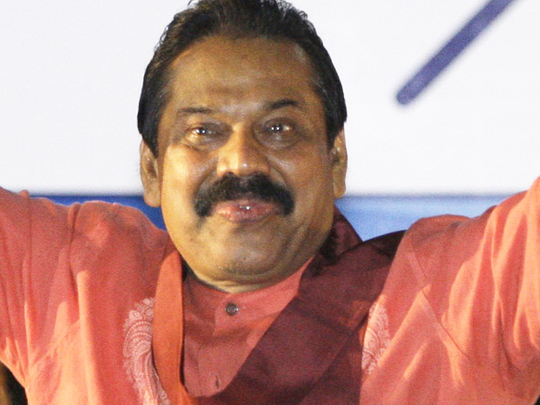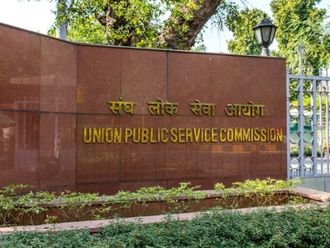
Wasting little time in seizing upon his 17-point electoral victory, Sri Lankan President Mahinda Rajapakse quickly consolidated his power by having his opponent General Sarath Fonseka arrested. Fonseka was detained on February 8, accused of plotting to assassinate Rajapakse and seize control of the government. This then led to 14 senior army officials being forced to resign, accused of being in conspiracy with the general, and approximately 40 serving and former soldiers arrested about half of whom have now been released.
A government spokesman, Keheliya Rabukwalla, told reporters that the general's crime was to have engaged in opposition politics before his retirement. Rabukwalla said that while Fonseka was still a member of the country's Security Council last year, "he had many connections and many dealings with various other political parties' leaders who had been working against the government and this amounts to treason, to some extent".
Further pleading the government's case, Defence Minister Gotabhaya Rajapakse, who is the president's younger brother, spoke with reporters from the Singapore-based The Straits Times. In his interview, he blamed Fonseka for a host of charges, including war crimes committed during the military's final offensive last May, the long detention of Tamil civilians in camps after that battle ended and even the killing of Sri Lankan journalists. He also blamed the US and other "western" governments such as that of Norway for backing Fonseka's campaign.
The Sinhalese majority had mostly voted for the president, whom they credit with ending the country's civil war between government forces and the Liberation Tigers of Tamil Eelam (LTTE), and appear complacent about the erosion of civil liberties under his rule.
As the perceived architect of the triumph over LTTE forces, Rajapakse has drawn accolades from Sinhalese Buddhist clergy proclaiming him the "Universally Glorious Ruler of the Sinhalese". Such hyperbole points to the still cavernous divide between ethnic Sinhalese and Tamils.
Tamils in Sri Lanka unquestionably have serious grievances. Favoured by British colonial administrators for their high education levels and linguistic skills, they aroused resentment among the Sinhalese beginning more than a half century ago. In 1956, then prime minister Solomon Bandaranaike adopted a policy that made Sinhala the sole national language and gave prominence to Buddhism, practised by the majority of the Sinhalese.
Paranoid president
It was hoped that a Sinhalese-led government in Colombo would be expected to take the opportunity to extend a magnanimous hand to the Tamils, if only to insure lasting peace. However, Rajapakse's paranoid actions of locking up defeated opponents though also ethnically Sinhalese would indicate that he is in no position to start reconciliation efforts.
Seizing on his defeat and subsequent detention of Fonseka, the president has dissolved the country's parliament, paving the way for parliamentary elections on April 8 two months ahead of schedule. Rajapakse is hoping to parlay his recent electoral success into a robust victory for his United People's Freedom Alliance in Sri Lanka's legislative branch.
Fonseka's detention has limited his access to political colleagues within his opposition alliance, itself a strange amalgam that includes Tamils and the leftist JVP. Without contact with a unifying leader, the alliance appears likely to fray in coming weeks.
Therefore, the government looks well poised to attain its proclaimed objective of a two-thirds majority in the forthcoming general elections. A two-thirds majority in parliament would enable Rajapakse to push through changes to the Constitution at will, without needing the support of opposition political parties, including those representing the majority of the ethnic minorities.
This amounts to yet more bad news for the Tamil minority, which has already grown weary of repressive measures on civil society. The Tamil cultural and historical capital, Jaffna, was heavily damaged by the Sri Lankan military and needs rebuilding.
To begin the process of national reconciliation and instil functioning democratic institutions, the Sri Lankan government needs to address the legitimate grievances at the root of the ethnic conflict. This will ensure that the current peace is a lasting one and include disenfranchised Tamils in the policy making process. Unfortunately for the Sri Lanka, there is little in Rajapakse's recent actions that would suggest even a semblance of stability, let alone national reconciliation. The president seems more content to lash out at his enemies than to foster national unity.
— Opinion Asia 2010
For the full article, please visit www.opinionasia.org
Colby Pacheco is a Master of Pacific International Affairs graduate of the Graduate School of International Relations & Pacific Studies, University of California, San Diego, and an Asia Chronicle Research Fellow.








